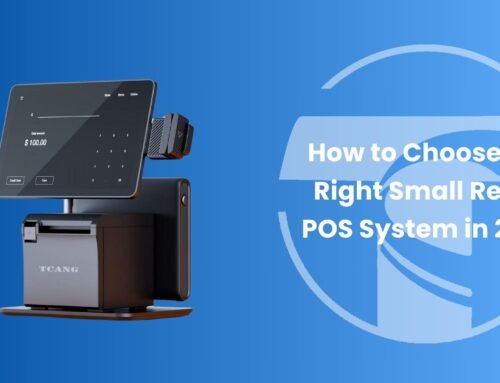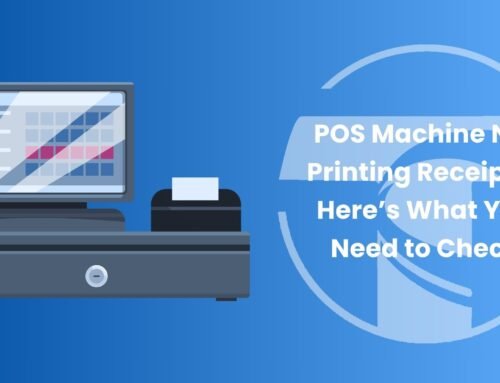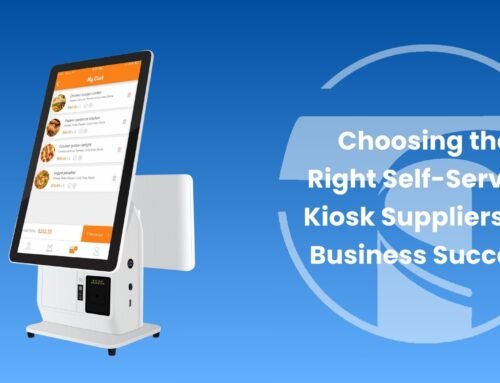In today’s fast-paced world, point-of-sale (POS) terminals have become an integral part of the retail, hospitality, and service industries. A POS terminal refers to a system where a transaction takes place between a business and its customer, allowing for secure payment processing. As technology advances, several types of POS terminals are available, each designed to suit specific business needs. Understanding these POS terminal types and their applications can help businesses choose the right solution for their operations.
1. Traditional POS Terminals
Traditional POS terminals are the standard devices found in most brick-and-mortar stores. These systems typically consist of a cash register, a barcode scanner, a card reader, and a receipt printer. They are connected to a central server that handles transactions, inventory management, and reporting.
Applications: Retail stores, supermarkets, and department stores.
These terminals provide an efficient way for businesses to track sales and manage inventory in real-time. They also offer integrated payment solutions, allowing customers to pay via credit cards, debit cards, or mobile payments.
2. Mobile POS (mPOS) Terminals
Mobile POS terminals have revolutionized how businesses operate, especially for small businesses and those on the go. These systems are typically smartphone or tablet-based and are connected to a card reader that can accept payments anywhere. mPOS terminals use Bluetooth or Wi-Ficommunicatenect with the payment gateway.
Applications: Food trucks, pop-up shops, and service providers (e.g., personal trainers, photographers).
With the rise of mobile commerce, mPOS systems offer unparalleled flexibility. They enable businesses to take payments directly from their customers, enhancing customer convenience and improving the overall user experience.
3. Self-Service POS Terminals
Self-service POS terminals are designed to allow customers to complete their transactions independently. These are typically seen in fast-food chains, airports, and grocery stores. Customers can order food, scan items, pay, and even print receipts without the need for assistance from a cashier.
Applications: Quick-service restaurants, supermarkets, and kiosks in shopping malls or airports.
Self-service terminals increase operational efficiency and reduce waiting times for customers. They also allow businesses to allocate fewer staff members to handle cash register duties, freeing them up to focus on customer service.
4. Cloud-Based POS Terminals
Cloud-based POS terminals store transaction data on remote servers rather than on-site servers, offering businesses access to real-time data from any device connected to the internet. These terminals can also integrate with other business management tools such as inventory tracking, accounting, and customer relationship management (CRM) software.
Applications: Multi-location retail chains, e-commerce platforms, and franchise businesses.
With cloud-based POS systems, businesses benefit from increased flexibility, scalability, and the ability to monitor sales and inventory across multiple locations from a single interface. These systems also offer the advantage of remote software updates, ensuring businesses always have access to the latest features and security updates.
5. Integrated POS Systems
Integrated POS terminals combine hardware and software solutions into a seamless system that manages all aspects of a transaction. These systems often include advanced features such as loyalty programs, customer data management, and sales analytics.
Applications: Restaurants with table service, hospitality industry (hotels, resorts), and high-volume retail environments.
Integrated POS systems streamline operations by connecting the point of sale with back-end operations such as inventory, employee scheduling, and reporting. This ensures that businesses can efficiently manage both customer interactions and operational processes in one platform.
6. Virtual POS (vPOS)
Virtual POS systems are primarily used for online payments, where businesses process credit card or debit card payments through a website or mobile app. These systems typically require an internet connection and can be integrated with various payment gateways for secure transactions.
Applications: E-commerce stores, subscription-based services, and online marketplaces.
vPOS terminals are an essential tool for businesses operating in the digital realm. They offer a secure method of accepting online payments and can be customized to suit specific business needs, such as recurring billing for subscription-based services.
7. POS Terminals with Contactless Payment
Contactless payment technology has grown in popularity, especially with the rise of mobile wallets like Apple Pay, Google Pay, and other NFC (Near Field Communication) payment methods. POS terminals that support contactless payments enable customers to pay by simply tapping their card or smartphone on the terminal, making the transaction process faster and more secure.
Applications: Cafés and restaurants, retail stores, and public transport systems.
The adoption of contactless POS terminals is transforming the customer experience by offering a quicker and more hygienic way of paying. These terminals are also more secure than traditional card swipes, as the information is transmitted via encrypted signals.
Conclusion
In today’s fast-paced business environment, POS terminals have become an essential part of the retail, hospitality, and service industries. From traditional POS terminals to advanced cloud-based POS systems, each type of POS terminal has its unique application scenarios, helping businesses improve efficiency, manage inventory, and provide a better customer experience.
Whether for physical stores, restaurants, or online shops, choosing the right POS terminal tailored to a business’s specific needs is crucial. When selecting a POS system, businesses need to consider the ease of use, payment security, and system flexibility.
Tcang offers professional, customized POS solutions designed to meet the specific needs of different industries and businesses. Tcang provides efficient, reliable, and tailored solutions that help businesses optimize operations, enhance customer experience, and achieve their commercial goals.








Leave A Comment